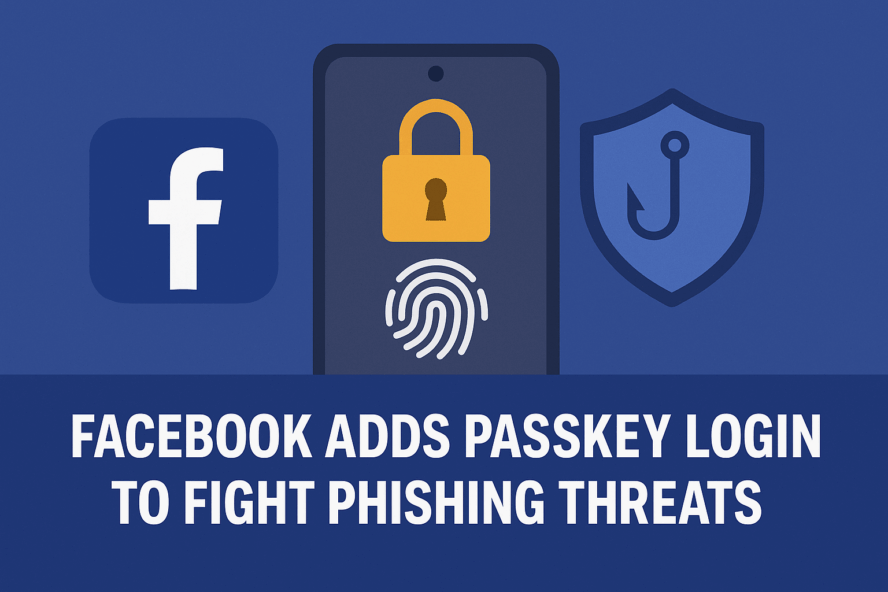
Facebook rolls out passkey login to fight phishing attacks
Facebook is introducing passkey support on its mobile app. Users can now log in using device-based authentication methods like fingerprint, face scan, or PIN. This major security upgrade makes it harder for attackers to hijack accounts through phishing attempts.
Why passkeys matter in cybersecurity
Passkeys are safer than traditional passwords. They can’t be guessed, reused, or leaked in data breaches. Also, since they link directly to a domain, they don’t work on fake websites. This cuts off phishing attempts at their root.
Passkeys use WebAuthn technology. When created, one key stays with your device, while the other is stored by the website. You authenticate yourself with a fingerprint or face scan—your device does the rest.
Facebook joins other tech giants
With this update, Facebook joins the growing list of tech platforms adopting passkeys. Google, Apple, Microsoft, and WhatsApp already use this method. Meta has confirmed that Messenger will also get passkey support soon.
Although there is no fixed rollout date, Meta says the feature is “coming soon” to both Android and iOS users.
Passkey support won’t replace passwords—yet
Even after enabling passkeys, users can still log in using passwords or other methods. These include security keys or two-factor authentication. But passkeys are expected to become the preferred option as more people adopt them.
Meta is also adding passkey support for autofilling payment info on Meta Pay. This will simplify and secure online transactions.
What if your device is lost?
Since passkeys are device-based, some users worry about losing access. However, most passkey-enabled services let you recover credentials through backup devices, email, or phone numbers. Apple’s iCloud Keychain and Google’s password manager both offer cross-device support.
Password managers like 1Password and Dashlane have already begun storing passkeys, making recovery even easier.
Cybersecurity gets a much-needed boost
In recent years, phishing attacks have become more complex and convincing. Fake Facebook login pages are one of the most common traps. By eliminating the need to manually enter passwords, passkeys reduce the chance of falling for these scams.
However, experts warn that users must stop entering passwords manually on suspicious websites. Even with passkeys, old habits can lead to security gaps.
Conclusion
Facebook’s rollout of passkey support is a major step forward in mobile account security. As phishing scams grow, using device-based authentication is a simple and powerful way to stay protected online. Cybersecurity begins with smarter logins—and passkeys might just be the future.

Create a passkey